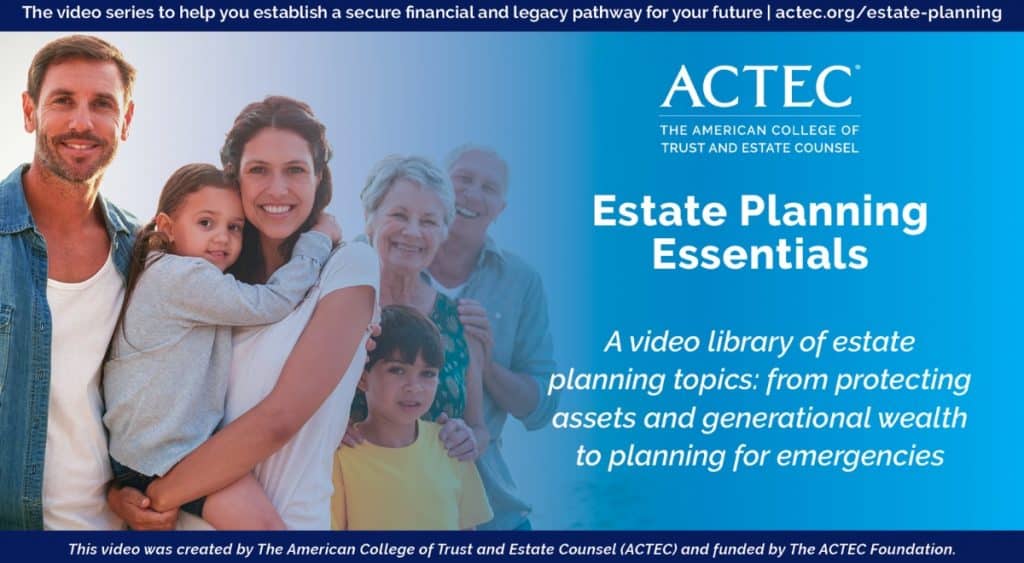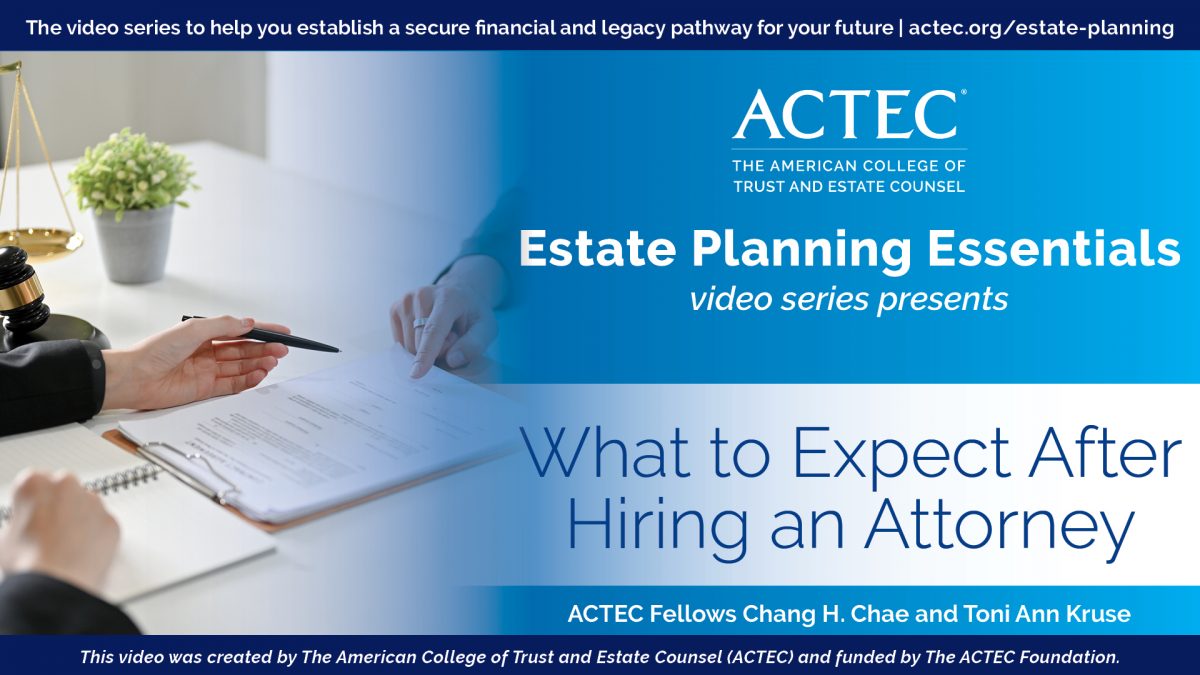There are many do-it-yourself estate planning documents and services available online. Are these DIY documents worth it? What are the risks and pitfalls? What do consumers need to know?
ACTEC Fellows Richard R. Gans and Brian Sparks discuss what you need to know about DIY forms, what might be missing from the documents and some of the legal technicalities.
Transcript
Welcome. My name is Richard Gans. I’m an ACTEC Fellow from Sarasota, Florida and I’m here today with Brian Sparks who is an ACTEC Fellow from Tampa, Florida.
Our topic today is do-it-yourself estate planning. Brian, what do you mean by do-it-yourself estate planning?
Brian Sparks: Well, hi Rick. I think of do-it-yourself estate planning as form documents you fill out online; documents that you create, type up or handwrite on your own; documents that you copy from a friend or family member, or even documents prepared for you by a lawyer in another state that you try to adopt for yourself in a new state. I’ve dealt with all of these over the years. I liken it to Googling a serious medical procedure and then trying to perform it on yourself.
Richard Gans: Are these kind of do-it-yourself estate planning documents legal?
Brian Sparks: Well maybe. Maybe not. While there’s nothing illegal about those documents, the legal formalities with how you sign estate planning documents are as important as what is in them. All states have specific legal requirements that must be followed in signing a will, a trust, a healthcare proxy, power of attorney, and so on. If those requirements are not followed properly, the document may be completely invalid. Those formal signing requirements vary from state to state and just may not be apparent on the form, and may not be easily found in state law.
Richard Gans: Well, it sounds like there are some traps for the unwary in getting those kinds of documents signed. What about the content and substance of the do-it-yourself document?
Brian Sparks:Well there are, indeed, huge traps for the unwary in that. Preprinted forms, even from an online provider, tend to be simplistic, and as a result may not address somebody’s specific circumstances. It may not do it appropriately. For example, if one of your children or grandchildren is a minor or is not very good with money, the form may not include provisions for a trust to protect that child. The form may use unfamiliar legal terms like per stirpes or by right of representation that can lead to something other than what you intend. There also may be state law restrictions on who can and can’t serve as an executor, a personal representative, or a trustee. If you type or handwrite your own will, you may not realize that there may be issues like survivorship conditions and gifts to spouses or children that may be required by state law, even if that’s not what you want.
Richard Gans: Well, it sounds like there are some traps for the unwary with substance too, and a lot that can go wrong. Anything else to be worried about?
Brian Sparks:Absolutely. A couple things come to mind. Number one, if you want to make changes to the homemade documents after they are signed, crossing things out or adding new text may not be legally valid. Modifications have to be done with the same signing formalities as the original document. Number two, assets like IRAs, annuities and life insurance are not normally subject to the terms of the will or a trust, but they may be. So don’t get lulled into thinking that the terms of your homemade will or trust will govern where the assets will go when you’re gone. Rather, they typically will go where you direct in a beneficiary designation form that’s separate from the will or trust.
Richard Gans: Brian, you just mentioned the issue of somebody innocently believing something that just isn’t true. That sounds to me like one of the biggest concerns in this do-it-yourself estate planning area. What do you think?
Brian Sparks: I agree, Rick. If you believe the documents that you’ve taken the time to draw up will protect you and your family only to discover at the precise moment when they are most needed that there’s a problem, that can be a real, real tragedy; even worse, when you may have already passed away by that time. Hiring a qualified estate planning lawyer is really the best way to ensure that your documents are appropriate for you and will be legally effective; and that your estate plan takes into consideration all relevant factors in your situation, like your IRA, annuities and life insurance beneficiary designations I mentioned. One of the most important things you will get for your legal fee investment is peace of mind.
Richard Gans: Well, this day and age, peace of mind is a precious commodity, indeed; and you’ve made a pretty compelling case that it would be a good idea for somebody who wants to do some estate planning to hire a good lawyer. And a good lawyer can be found in your area by going to actec.org. Thanks for being with me today, Brian. I appreciate your time and expertise.
Featured Video
What to Expect After Hiring an Attorney
Tips on what to keep in mind when working with an attorney, including the difference between individual, joint and family representation.
ACTEC Estate Planning Essentials

ACTEC Fellows provide answers to frequently asked trust and estate planning questions in this video series.



